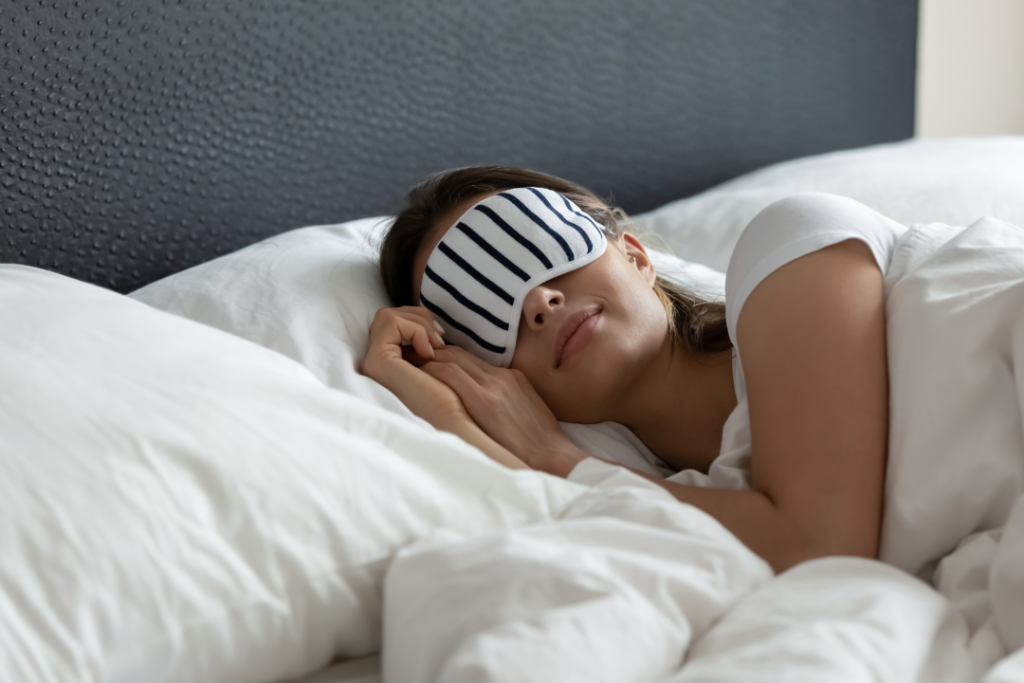The latest health tips, recipes and wellbeing inspiration from our team at The Remedy Room

Getting a good night’s sleep is essential for overall health and well-being, yet many people struggle with insomnia or restless nights. Magnesium, a vital mineral, has been shown to help improve sleep quality. However, not all magnesium supplements are created equal. In this blog post, we’ll explore three of the best types of magnesium for sleep: magnesium glycinate, magnesium taurate, and magnesium L-threonate. We’ll discuss their benefits and delve into the science behind how they can enhance your sleep.
Magnesium plays a crucial role in many bodily functions, including muscle and nerve function, blood sugar control, and blood pressure regulation. It also helps regulate neurotransmitters, which send signals throughout the nervous system and brain. This regulation is key for sleep as it helps calm the nervous system and promotes relaxation.
What is it? Magnesium glycinate is a compound formed from magnesium and glycine, an amino acid that promotes relaxation and has calming properties.
How does it help with sleep? Magnesium glycinate is well-known for its high bioavailability, meaning it is easily absorbed by the body. This form of magnesium is less likely to cause gastrointestinal distress, making it a good option for those with sensitive stomachs. Glycine, the amino acid in magnesium glycinate, has been found to improve sleep quality and efficiency. A study by Yamadera et al. (2007) demonstrated that glycine ingestion before bedtime significantly improved sleep efficiency and reduced the time it took to fall asleep.
A study published in the Journal of Research in Medical Sciences found that magnesium supplementation significantly improved sleep quality in elderly people with insomnia (Abbasi et al., 2012). This suggests that magnesium glycinate can be particularly beneficial due to its high absorption rate and calming effects.

What is it? Magnesium taurate combines magnesium with taurine, an amino acid that supports cardiovascular health and has calming effects on the nervous system.
How does it help with sleep? Taurine has been shown to have anxiolytic (anxiety-reducing) properties, which can help promote relaxation and improve sleep quality. The combination of magnesium and taurine can enhance the calming effects, making it easier to fall asleep and stay asleep.
Research published in the journal Advances in Experimental Medicine and Biology highlights taurine’s role in regulating sleep and reducing anxiety (El Idrissi, 2008). Additionally, a study in the Journal of Clinical Hypertension suggested that magnesium taurate could help reduce blood pressure, further promoting a state of relaxation conducive to sleep (Mizushima et al., 2004).
What is it? Magnesium L-threonate is a newer form of magnesium that is created by combining magnesium with threonic acid, a metabolite of vitamin C.
How does it help with sleep? Magnesium L-threonate is unique in its ability to cross the blood-brain barrier, which makes it particularly effective for cognitive function and mental clarity. It enhances synaptic density and plasticity, potentially improving memory and learning. These brain benefits also extend to better sleep regulation.
A study published in the journal Neuron found that magnesium L-threonate could increase magnesium levels in the brain and improve cognitive function in aged rats (Slutsky et al., 2010). By improving brain health and reducing symptoms of brain fog and anxiety, magnesium L-threonate can help foster a more restful and rejuvenating sleep.
Conclusion
While all three types of magnesium—glycinate, taurate, and L-threonate—can support better sleep, the best one for you may depend on your specific needs and health conditions. Magnesium glycinate is excellent for those needing a highly absorbable form with calming effects. Magnesium taurate is ideal for individuals seeking to combine the benefits of magnesium with cardiovascular support. Magnesium L-threonate is perfect for those looking to enhance cognitive function and ensure deep, restorative sleep.
Incorporating these magnesium supplements into your routine, along with maintaining good sleep hygiene, can make a significant difference in your sleep quality. Always consult with a healthcare provider before starting any new supplement regimen to ensure it’s appropriate for your individual health needs.
If you are looking to supplement magnesium, browse our store HERE, or call one of our qualified practitioners for individualised support on 02 6685 6445.
References
Abbasi, B., Kimiagar, M., Sadeghniiat, K., Shirazi, M. M., Hedayati, M., & Rashidkhani, B. (2012). The effect of magnesium supplementation on primary insomnia in elderly: A double-blind placebo-controlled clinical trial. Journal of Research in Medical Sciences: The Official Journal of Isfahan University of Medical Sciences, 17(12), 1161–1169.
El Idrissi, A. (2008). Taurine improves learning, memory, and long-term potentiation. Advances in Experimental Medicine and Biology, 643, 245–255.
Mizushima, S., Cappuccio, F. P., Nichols, R., & Elliott, P. (2004). Dietary magnesium intake and blood pressure: A qualitative overview of the observational studies. Journal of Clinical Hypertension, 6(10), 743–749.
Slutsky, I., Abumaria, N., Wu, L. J., Huang, C., Zhang, L., Li, B., … & Liu, G. (2010). Enhancement of learning and memory by elevating brain magnesium. Neuron, 65(2), 165–177.
Yamadera, W., Inagawa, K., Chiba, S., Bannai, M., & Takahashi, K. (2007). Glycine ingestion improves subjective sleep quality in human volunteers, correlating with polysomnographic changes. Sleep and Biological Rhythms, 5(2), 126–131.

Jessie Johns is a Clinical Nutritionist at The Remedy Room that has a deep understanding of how the food we eat impacts our health and wellbeing. She believes that consistently meeting the body’s nutritional requirements with adequate wholefoods is fundamental in not only restoring good health, but to truly heal the body and thrive.
To learn more about Jessie click here
The Remedy Room recognises the Bundjalung of Byron Bay Arakwal people, the Minjungbal people and the Widjabul people as Traditional Owners and custodians for parts of the Byron Shire